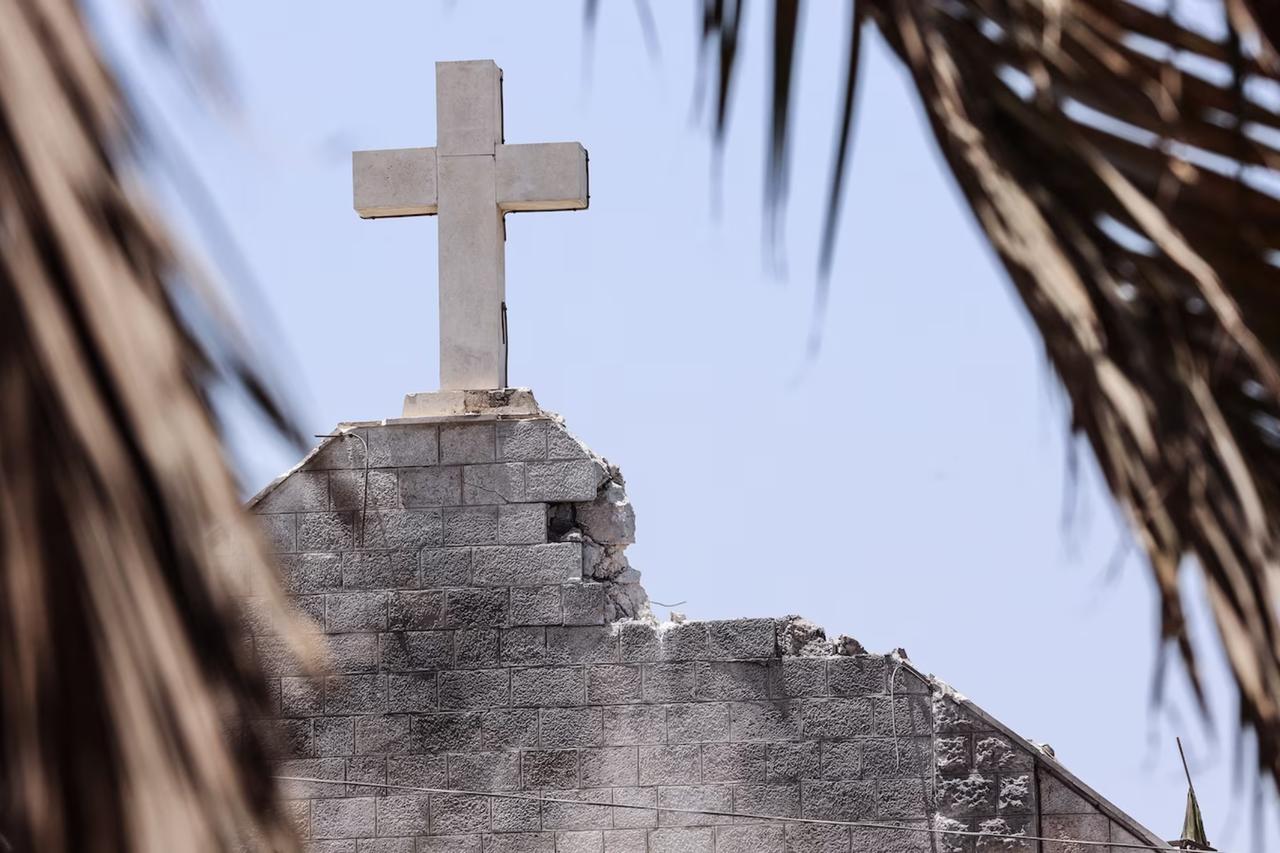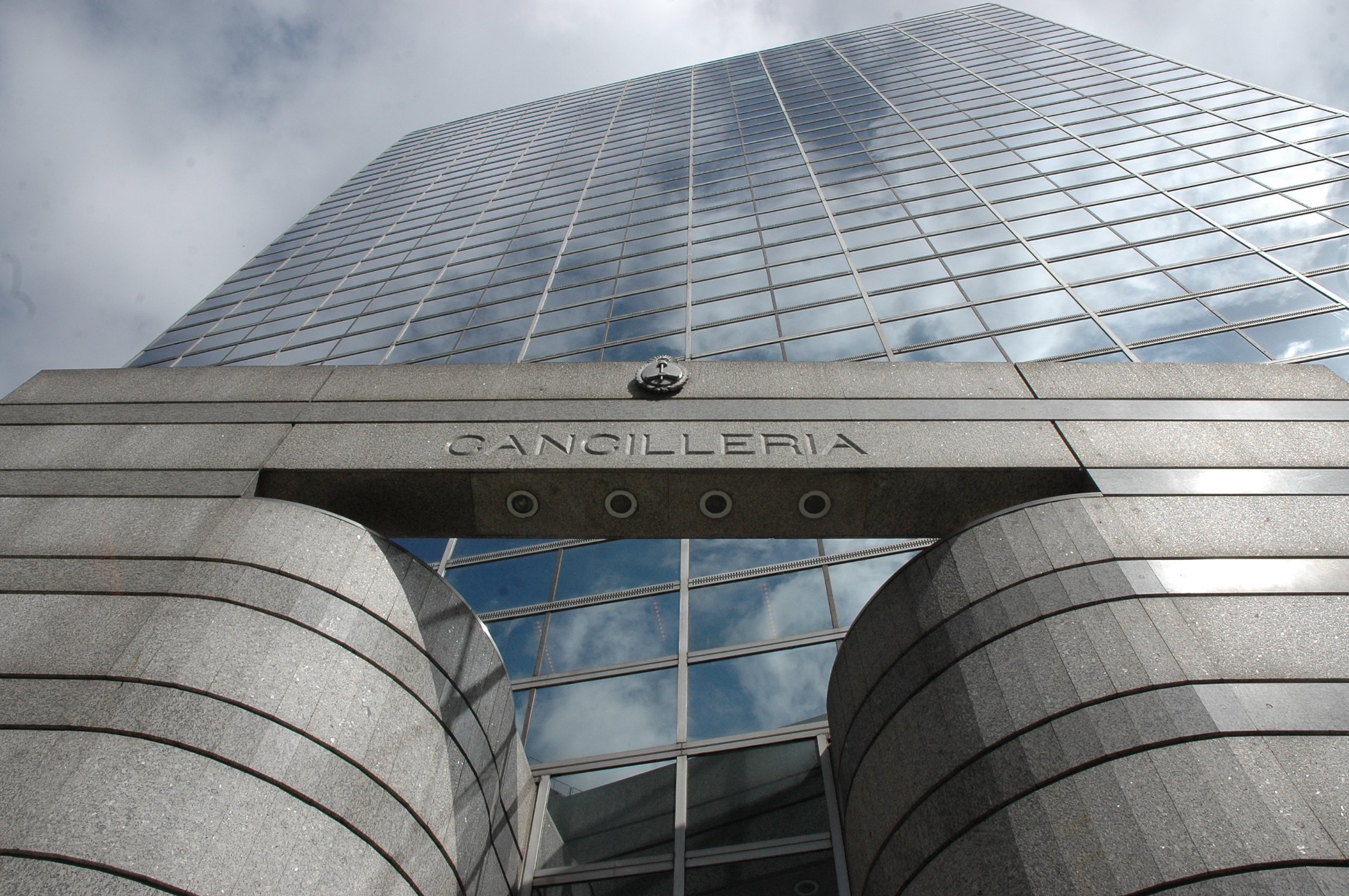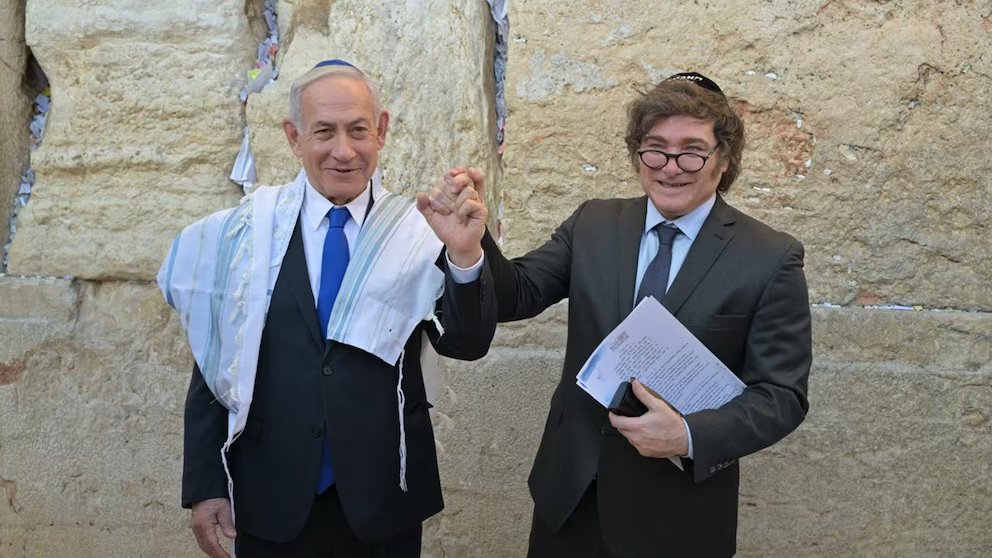
Israel’s airstrike on Gaza’s Holy Family Catholic Church, the only Catholic institution in the enclave, has triggered a wave of criticism in Argentina. The attack killed three civilians and wounded several others, including Father Gabriel Romanelli, an Argentine-born priest who has served the Gaza parish since 2019.
What sparked particular anger was the Argentine Foreign Ministry’s cautious response. Despite Romanelli’s Argentine nationality and his minor injuries in the strike, Buenos Aires stopped short of condemning Israel, issuing instead a brief statement expressing “serious concern” and trust that assistance would be extended to Romanelli and the affected community.
The statement, notable for not naming Israel, also underscored the importance of respecting civilians and religious sites under international humanitarian law. Now, Argentines are questioning and comparing previous statements of the foreign affairs department of the country.

Romanelli, 53, has lived in the Middle East for three decades and speaks fluent Arabic. Since returning to Gaza earlier this year, after months of waiting for permission following the October 2023 Hamas attacks on Israel, he has run the Holy Family Church as a shelter for both Christians and Muslims.
His personal connection with the Vatican was underscored by reports that the late Pope Francis regularly called him for updates on Gaza. Those calls continued until days before Francis’ death in April. After the latest incident, Pope Leo XIV issued a statement expressing regret over the bombing and renewed the vatican’s call for a ceasefire.
The Israeli side stated that the attack was “not intentional” and that it “is carefully examining the incident,” although it's the fifth time Israel has attacked churches in Gaza over the last years.

Argentina’s Foreign Ministry issued a brief statement expressing “serious concern” over the incident and trusting that authorities would assist Father Romanelli and the affected community. The statement emphasized the protection of civilians and religious sites under international law but avoided directly naming Israel as the attacker or issuing any form of condemnation.
This measured language marked the first time Argentina publicly acknowledged any discomfort with Israel's actions in Gaza, but it fell short of the direct response many in the country had expected, especially given the involvement of an Argentine national.
The Argentine government’s muted response triggered a fierce backlash on social media. Many questioned why the statement avoided naming Israel and why no outright condemnation followed, especially given that Argentina had previously condemned attacks that involve Israeli dual nationals with no direct Argentine involvement.
Critics accused the government of double standards, arguing that diplomatic ties with Israel appeared to outweigh the duty to protect its own citizens and uphold consistent foreign policy principles.
Among the most widely shared comments on social media were sarcastic remarks questioning the absence of any mention of the attacker in the official statement. One comment that gained particular traction read, “Did a meteorite fall?”

The fallout from the Gaza church strike has tested the boundaries of President Javier Milei’s pro-Israel stance at home. While his administration has doubled down on support for Israel in recent months, the incident reignited debate in Argentina over whether political alliances should override national interests, particularly when Argentine lives are directly impacted.
Vice President Victoria Villarruel, whose political distance from President Milei has become increasingly apparent, drew a clear line with the administration by explicitly condemning the Israeli attack on Gaza’s Catholic church.
In her post on X, the vice president not only named Israel as the perpetrator but also framed her message around Catholic values. Expressing “support and solidarity” with Father Gabriel Romanelli and the parishioners of the Holy Family Parish, she condemned the bombardment, sent condolences to the families of the four people killed, and used the occasion to reiterate a call for a ceasefire.
While President Milei, who openly aligned Argentina with Israel from his first days in office, including a high-profile visit to Jerusalem in February, has backed Israel’s actions in Gaza as legitimate self-defense.
Beyond the traditional leftist circles in Argentina, which have often criticized close ties with Israel on human rights grounds, the government now risks unsettling a segment of its right-wing Catholic support base. The incident, and the government's cautious handling of it, may resonate uncomfortably with conservative voters sensitive to Catholic values.
Still, Middle East policy remains far from a decisive factor for most Argentine voters, and is unlikely to move to the top of the political agenda despite the backlash.